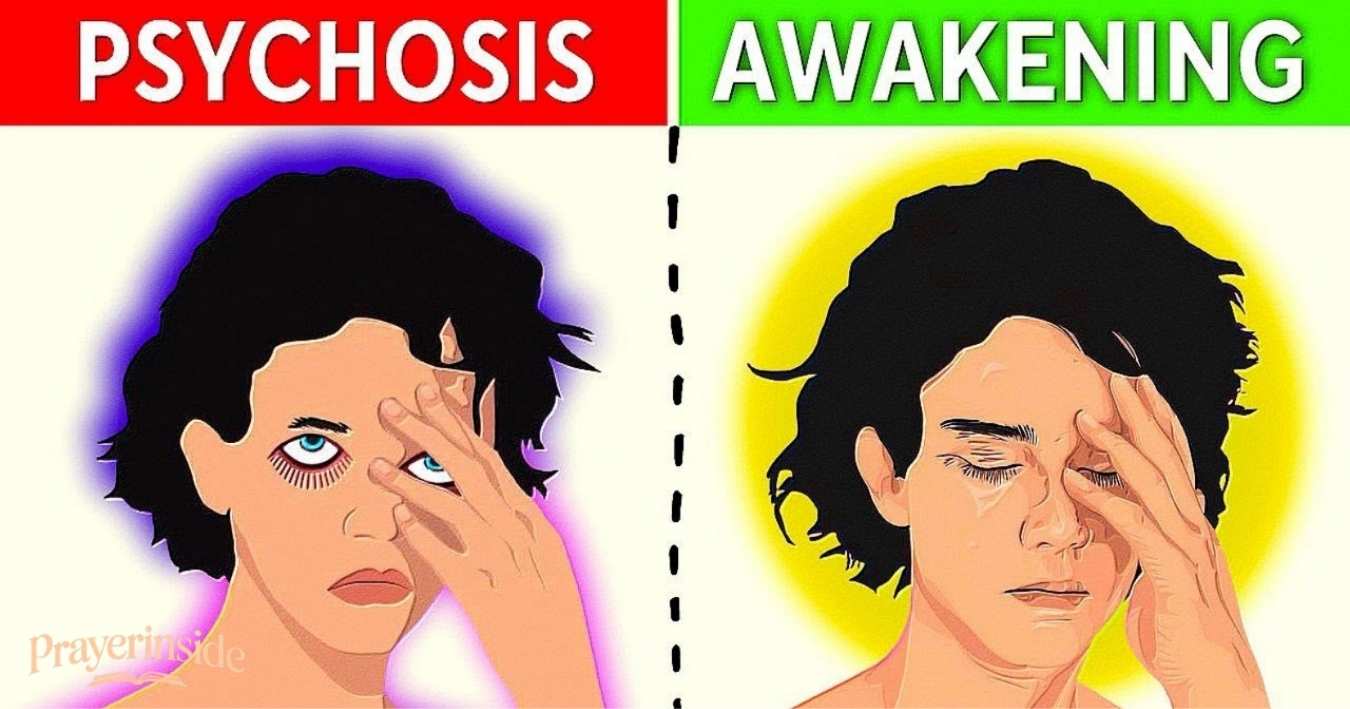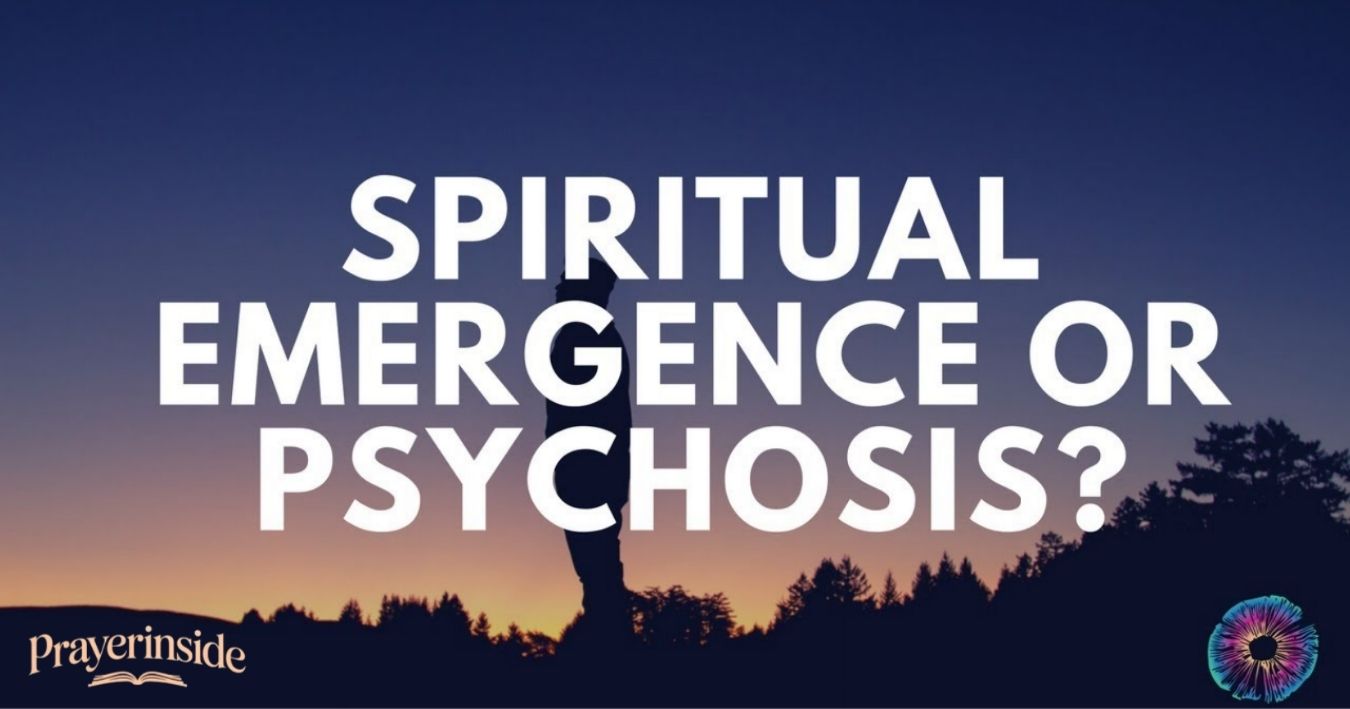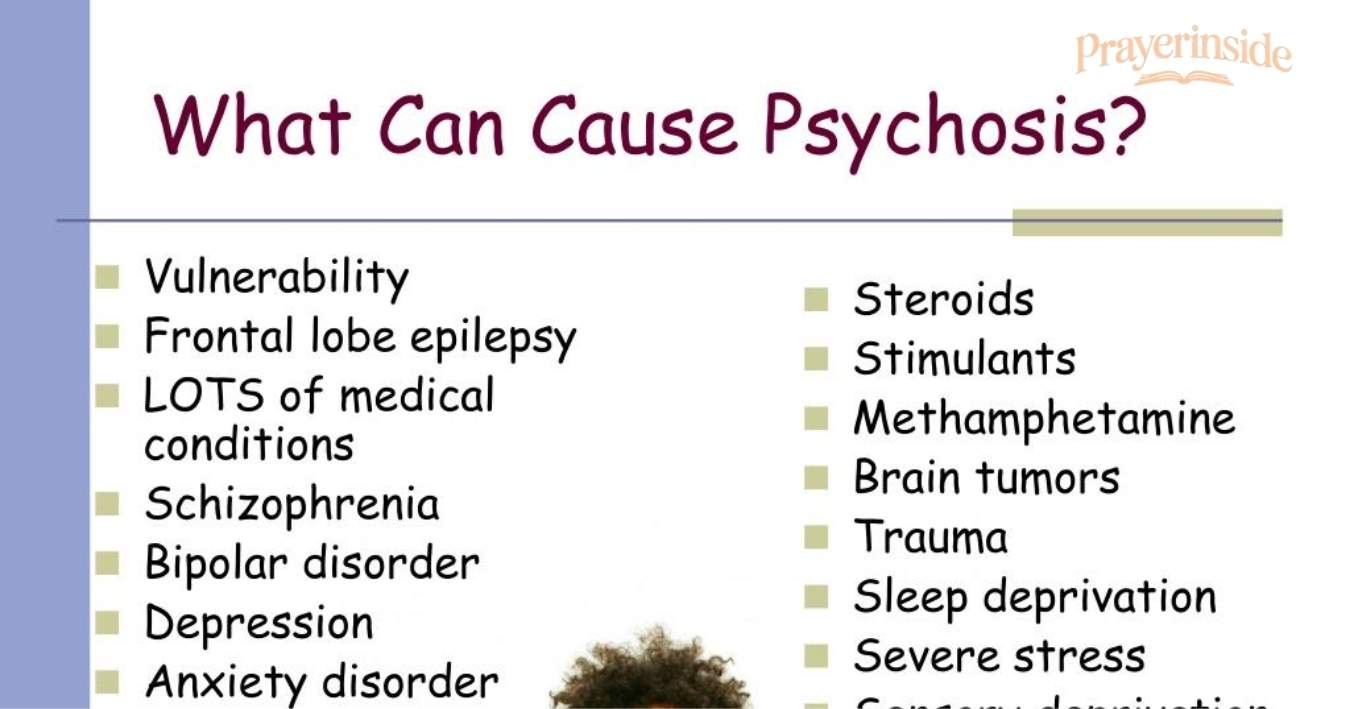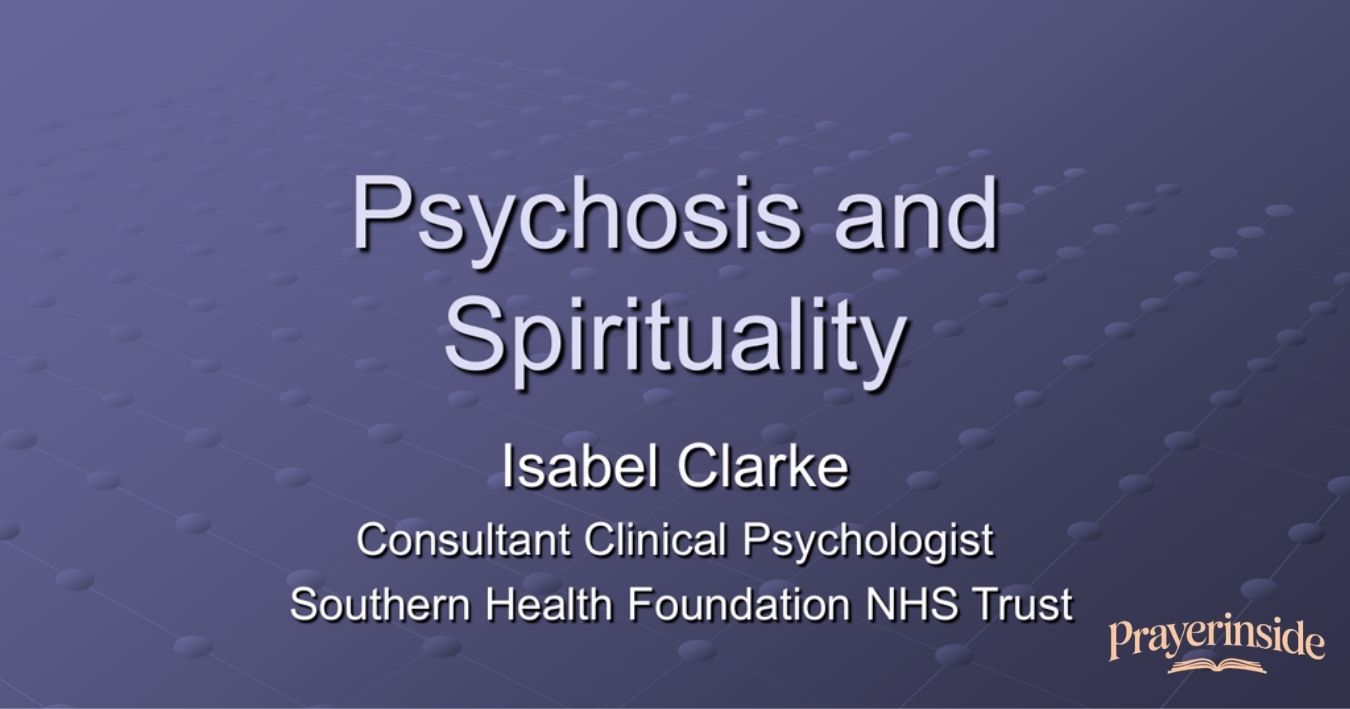Spiritual psychosis is a serious condition that affects the mind. It happens when spiritual experiences become overwhelming. People may lose touch with reality. Spiritual psychosis can cause hallucinations, delusional thinking, and disorganized thinking. It may feel like a spiritual crisis or spiritual emergency, but it goes beyond normal spiritual awakening.
Signs of spiritual psychosis include extreme anxiety, depression, emotional disturbances, social withdrawal, and sleep disturbance. Some may experience auditory hallucinations or visual hallucinations. Religious delusions and obsession with spiritual/religious entities are common. Personality changes and hyperfixation on religious practices can appear.
What is spiritual psychosis?
Spiritual psychosis is a condition where intense spiritual experiences overwhelm the mind. People may struggle to tell what is real and what is imagined. It often shows up as psychotic episodes with hallucinations, auditory hallucinations, or visual hallucinations. Delusional thinking and disorganized thinking are common, sometimes forming a formal thought disorder (FTD).
Those experiencing spiritual psychosis might believe they have a divine mission or feel spiritual superiority over others. Religious delusions and obsession with spiritual/religious entities, like God, deities, or prophets, are typical. This state can lead to emotional disturbances, anxiety, depression, social withdrawal, and functional impairment.
Unlike a normal spiritual awakening, which brings clarity and peace, spiritual psychosis distorts reality. It can turn mystical experiences or spiritual rituals like prayer, fasting, or meditation into sources of stress or confusion.
Differentiation Between Spiritual Awakening and Psychosis

A spiritual awakening is a positive shift in spiritual perception. It brings clarity, peace, and a stronger connection to God or divine beings. People feel more compassionate, grounded, and aware. Daily life usually improves, and emotional regulation strengthens.
Spiritual psychosis, by contrast, distorts reality. Delusional thinking, auditory hallucinations, visual hallucinations, and disorganized thinking appear. Individuals may feel they have a divine mission or experience religious delusions. Social withdrawal, functional impairment, and sleep disturbance are common. Spiritual rituals like prayer, fasting, or meditation may become obsessive or harmful.
A spiritual crisis may look similar but usually leads to growth, not mental imbalance. Recognizing the difference helps prevent psychotic episodes and promotes mental health. Early support from licensed therapists or mental health professionals is crucial.
Risks of psychotic episodes in spiritual practices
Hyperfixation and Over-Identification
Intense focus on spiritual practices like prayer, meditation, fasting, or yoga can sometimes lead to spiritual psychosis. People may develop hyperfixation on spiritual/religious entities, divine beings, or mystical experiences. Over-identification with prophets, saints, or spiritual figures can distort spiritual perception, creating delusional thinking and altered reality.
Vulnerability from Mental Health Factors
Individuals with genetic predisposition, family history of mental illness, bipolar disorder, or schizophrenia face higher risks. Neurochemical imbalances in dopamine or serotonin can trigger psychotic symptoms. Trauma exposure, stressful life events, and substance use further increase vulnerability, leading to auditory hallucinations, visual hallucinations, formal thought disorder (FTD), and disorganized thinking.
Functional and Social Consequences
Spiritual psychosis can cause social withdrawal, emotional disturbances, sleep disturbance, and functional impairment. Individuals may experience emotional instability, confusion, grandiosity, or hostility. Obsessive spiritual rituals and perceived divine missions may lead to risky or harmful behavior. Early intervention with licensed therapists, psychotherapy, CBT, and community support is essential to protect mental health and ensure emotional stability.
Importance of Understanding Spiritual Psychosis

Here’s a clear, human-readable section for “Importance of Understanding Spiritual Psychosis” with bullet points, using your required keywords naturally:
Importance of Understanding Spiritual Psychosis
Understanding spiritual psychosis is crucial for both individuals and communities. Awareness helps prevent psychotic episodes, reduces stigma, and promotes timely intervention. Here’s why it matters:
- Early Detection: Recognizing signs like delusional thinking, auditory hallucinations, or visual hallucinations allows for prompt mental health support and reduces functional impairment.
- Protecting Mental Health: Awareness of spiritual/religious entities, hyperfixation, and spiritual emergencies can prevent emotional disturbances, anxiety, depression, and sleep disturbance.
- Differentiating Experiences: Knowing the difference between spiritual awakening, spiritual crisis, and spiritual psychosis helps distinguish healthy mystical experiences from altered reality or religious delusions.
- Supporting Vulnerable Individuals: Individuals with bipolar disorder, schizophrenia, personality changes, or genetic predisposition benefit from early psychotherapy, CBT, and community support.
- Promoting Recovery: Understanding encourages integration of experiences, emotional regulation, safety planning, and engagement with licensed therapists or support groups.
Grasping these aspects ensures both safety and a healthier recovery journey for those at risk of spiritual psychosis.
What is the difference between spiritual psychosis and healthy spirituality?
Healthy spirituality
Brings balance, growth, and inner peace. It often involves spiritual awakening, connection with God or divine beings, and meaningful spiritual experiences. People practicing healthy spirituality usually show strong emotional regulation, stable mental health, and better coping mechanisms. Daily life continues smoothly, and social interactions remain positive. Prayer, meditation, yoga, or spiritual rituals enhance well-being without causing functional impairment.
Spiritual psychosis,
However, distorts reality. Individuals may experience religious delusions, auditory hallucinations, visual hallucinations, disorganized thinking, or formal thought disorder (FTD). They might feel spiritual superiority or believe they have a divine mission, leading to social withdrawal, emotional disturbances, and risk behaviors. Sleep disturbance, insomnia, and hyperfixation on spiritual/religious entities are common. Early psychotherapy, CBT, and support from licensed therapists are crucial to prevent harm.
Main Causes of Religious Psychosis

Religious psychosis often arises from a mix of biological, psychological, and environmental stressors. Understanding these causes helps in early detection and treatment.
Biological Factors
- Genetic predisposition and family history of mental illness increase vulnerability.
- Neurochemical imbalances, especially in dopamine and serotonin, can trigger psychotic symptoms like auditory hallucinations and visual hallucinations.
- Medication side effects or autoimmune disorders may also contribute to mental imbalance.
Psychological Factors
- Pre-existing psychiatric disorders such as bipolar disorder, schizophrenia, or personality changes heighten risk.
- Trauma exposure, poor emotional regulation, and weak coping mechanisms can worsen delusional thinking and cognitive distortion.
- Certain personality traits, high sensitivity, and deep introspection make individuals more prone to spiritual psychosis.
Environmental Factors
- Stressful life events like loss, abuse, or major changes can trigger psychotic episodes.
- Cultural influences may shape religious delusions or spiritual perception, sometimes reinforcing altered reality.
- Social isolation or lack of community support can escalate emotional disturbances and functional impairment.
Identifying these causes early allows for early intervention, psychotherapy, CBT, and community support, reducing the impact of religious psychosis and improving the recovery journey.
Also Read : Guardian Angel Prayer for Comfort, Faith, and Heavenly Support
FAQ,s
What are the signs of spiritual psychosis
Signs of spiritual psychosis include auditory hallucinations, visual hallucinations, delusional thinking, disorganized thinking, social withdrawal, hyperfixation on spiritual topics, emotional disturbances, and sleep disturbance.
What is mystical psychosis
Mystical psychosis is a form of spiritual psychosis where intense mystical experiences or spiritual perceptions overwhelm reality, causing altered reality, religious delusions, and functional impairment.
How to talk to someone in spiritual psychosis
Approach with empathy and patience, avoid arguing, listen carefully, encourage professional mental health support, and gently suggest psychotherapy, CBT, or community support.
What are the five stages of psychosis
The five stages of spiritual psychosis include prodromal signs, acute psychotic episode, peak delusions and hallucinations, stabilization, and recovery with integration of experiences.
Conclusion
Spiritual psychosis can affect anyone deeply engaged in spiritual experiences. It often begins with subtle psychotic symptoms like auditory hallucinations, delusional thinking, disorganized thinking, and sleep disturbance. Ignoring early signs may lead to functional impairment, social withdrawal, emotional disturbances, or even risk behaviors. Factors like genetic predisposition, neurochemical imbalance, trauma, stress response, and personality traits increase vulnerability.
Protecting your mind requires early intervention, proper coping mechanisms, and support from licensed therapists, mental health professionals, and community support. Practices like mindfulness, meditation, yoga, and healthy lifestyle interventions help maintain emotional stability and mental clarity. Recognizing spiritual psychosis early and seeking psychotherapy, CBT, or antipsychotic medications can prevent long-term mental imbalance. Stay aware, seek help, and maintain safe spiritual rituals to protect your mind on the recovery journey.

